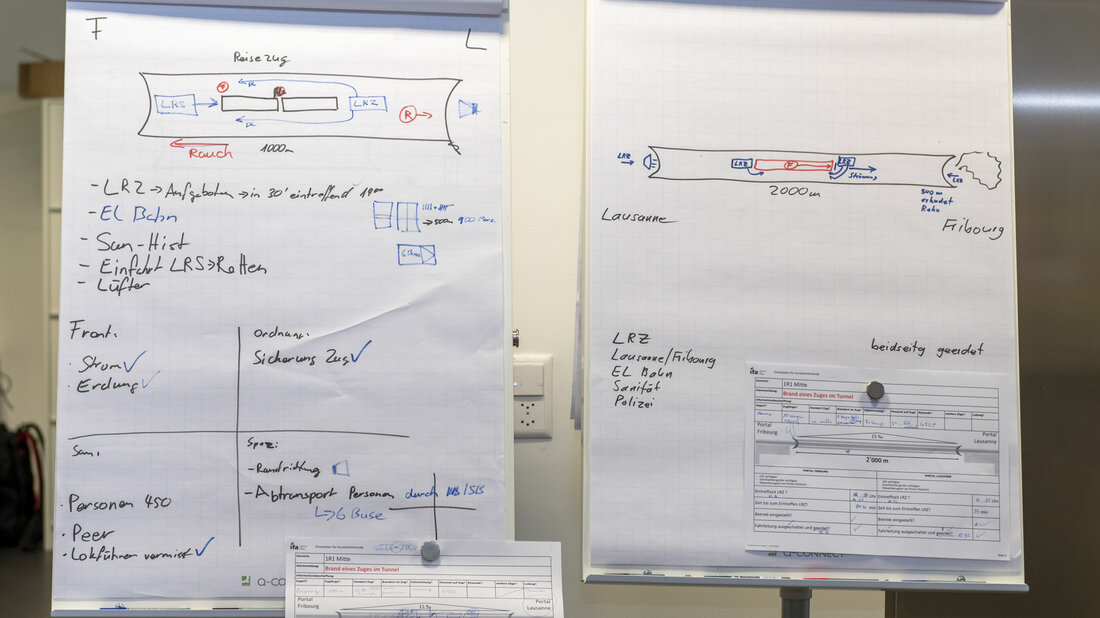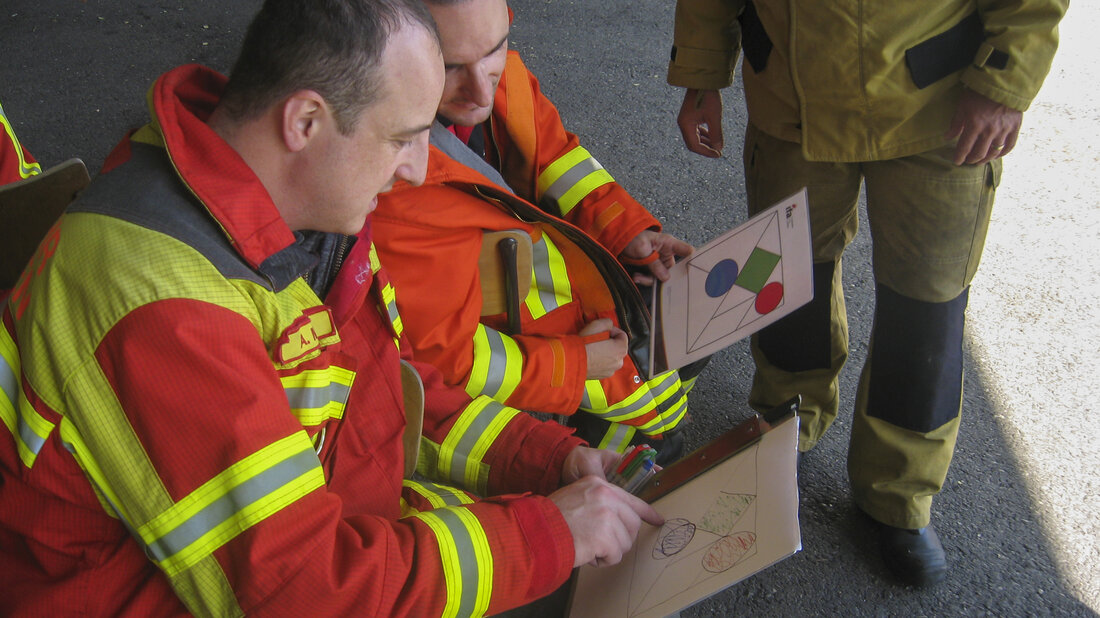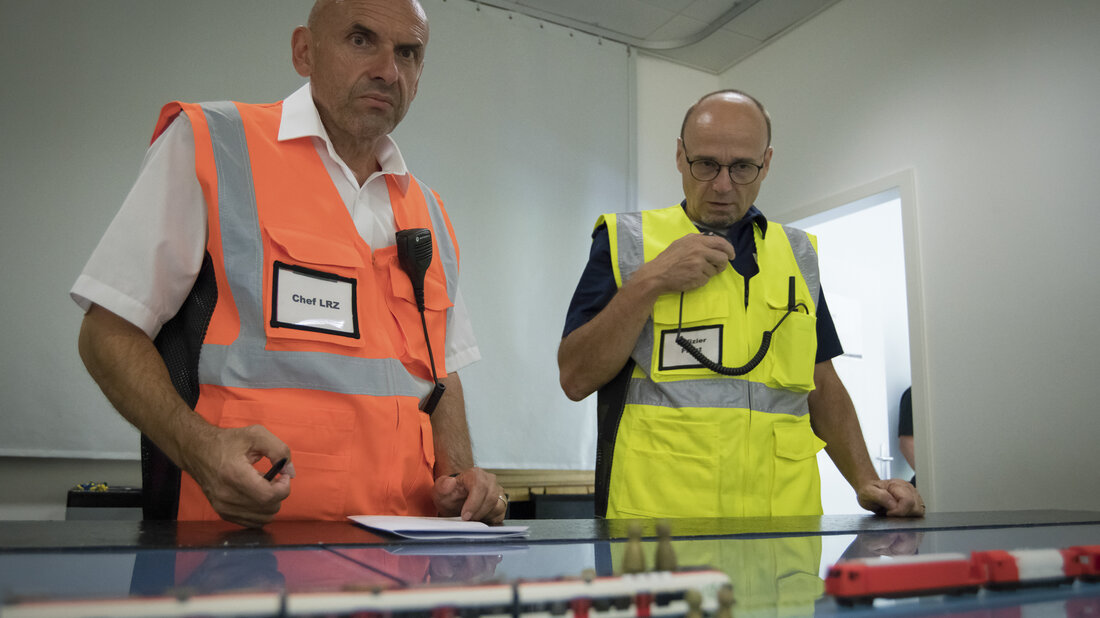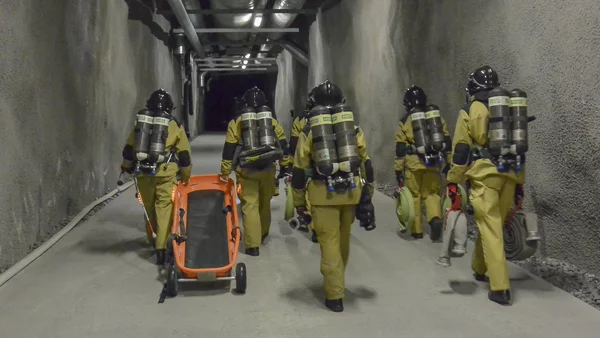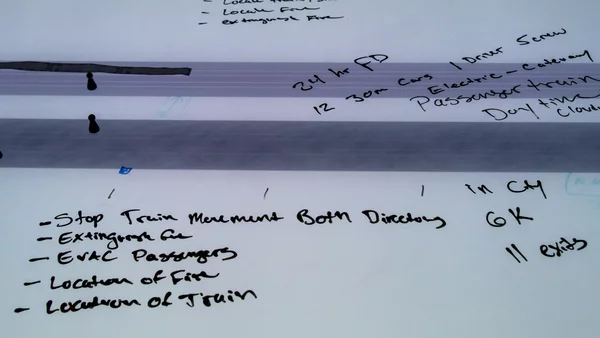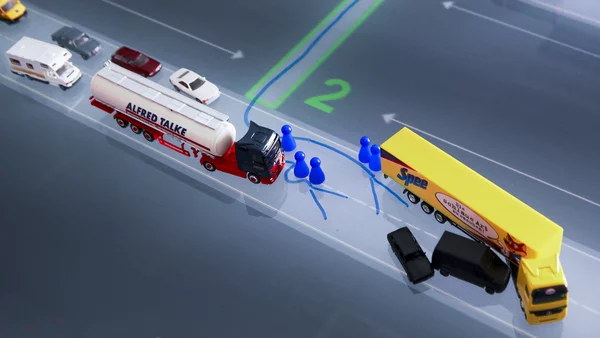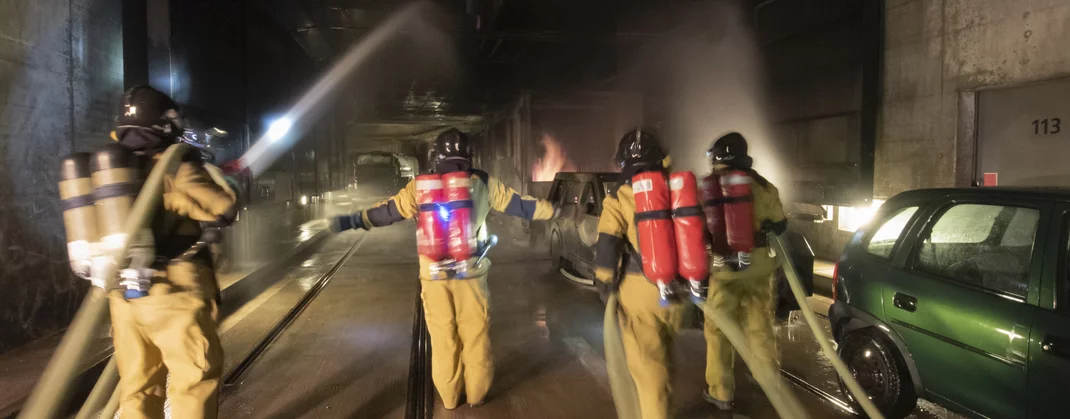
UTS operations require extra coordination effort
The International Fire Academy's operational tactics for managing incidents in traffic tunnels intends a two-sided attack by default. This means that at least two fire services (or units) have to be coordinated, starting from the first alarm. This poses some challenges for the incident commanders due to the distance between the portals.
Developing a common understanding of the situation
During tunnel operations, the incident commanders usually cannot meet in a common location for situation meetings. As a result, the section commander on portal A may see something quite different (for example, dense smoke swelling from the portal) than the other one at portal B (for example, no smoke). Such important information must be communicated immediately. Only then will the incident commanders have the same understanding about the upstream and downstream side, and only then can they coordinate their tactical decisions. Here, it sounds simple. In practice, however, incident commanders are under massive time, and decision pressure and are more than busy with their "own problems". Therefore, we train with them in the Tactics Centre, constantly thinking of the other portal and immediately passing on all information relevant for the colleagues.
What's left there looks like right here
What needs to be trained is unequivocal communication. For example, those who march to the left from the point of view of portal A may go to the right from the point of view of portal B. It is therefore intensively practised to communicate clearly, for example by radioing «We are going from emergency exit 12 in the direction of portal A».
Coordination with partner organisations
Coordination with partner organisations is particularly challenging, for example in the case of operations in railway tunnels with representatives of railway companies. If they say that the railway is closed, firefighters may think that there is no longer any danger. In fact, even after the railway is closed, vehicles must always be expected, for example an approaching fire and rescue train. The parties involved can only reliably avoided such serious misunderstandings by intensively communicating with each other before deployment. That is why at our Swiss rail officer courses incident commanders of the railway companies, for example the chiefs of the fire and rescue trains, are involved.
Training operational communication
The Tactics Centre of the International Fire Academy in Balsthal offers the ideal conditions for training operational communication. It consists of three rooms in which the two portal sides and the interior of the tunnel are displayed on projection tables as a tabletop game. When the doors are closed, the three areas can only communicate with each other via radio, which always leads to chaos in the first attempts. But after only a few rounds, all course participants will learn how important intensive and precise communication is and how this can be achieved with concentration and (radio) discipline.


